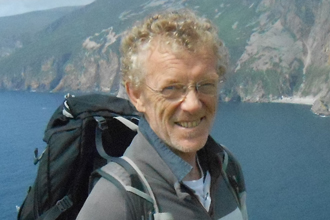Although not yet in WEHI, at least my feet were again on Australian soil, having initially visited in 1955 by boat, staying nine months in Sydney.
With Ban-Hoc Toh, I published a few papers and in 1976 knocked again on the WEHI door and luckily was offered a PhD position in the Cell Biology Laboratory, part of the late Professor Don Metcalf’s Cancer Research Unit.
Arriving in WEHI in January 1977, things were fairly quiet. Noel Warner had left and Alan Harris, my eventual PhD supervisor, was on sabbatical. In the first year, I was alone in the lab, unable to get experiments to work and I became disheartened.
Luckily, ‘Plan B’ was to develop a limiting dilution mixed lymphocyte reaction (MLR) microculture system to determine frequencies of alloreactive cytotoxic T lymphocyte precursors (CTL-P) in mouse lymphoid organs.
Presenting my work at Don’s lab meetings, I was told, “You’re wasting your time; the best things T cells do in vitro is die”.
Back then, apoptosis hadn’t been discovered and cells dying meant you’d done something wrong. Such remarks certainly made a fledgling PhD student very nervous, but being part of Don’s group was a fantastic experience in honing one’s research skills and scientific rigour.
Finally, Alan returned and I became his first PhD student. How lucky I was! Those who knew Alan will remember his generosity, patience, incredible scientific knowledge, rigour, experimental skills and humanity. We became life-long friends.
Alan refused to add his name to my publications. Later, I asked him why and he simply replied, “It was your work, not mine”.
I also befriended Tom Mandel, who was analysing mouse foetal thymic organ cultures (FTOC), and Wednesday afternoons were spent in the basement with Tom. This work initiated my career’s main research interest, namely mouse lymphocyte development.
Other collaborations were initiated, all resulting in publications. The thesis was written with pencil and paper and cut-and-paste operations done with scissors and Sellotape.
I was pretty determined to do a PhD at WEHI and I’m grateful to Ian Mackay for having helped me achieve my goal and Sir Gustav Nossal for his encouragement. I am profoundly thankful to Alan and Tom for their friendship; I feel I was blessed knowing them.



